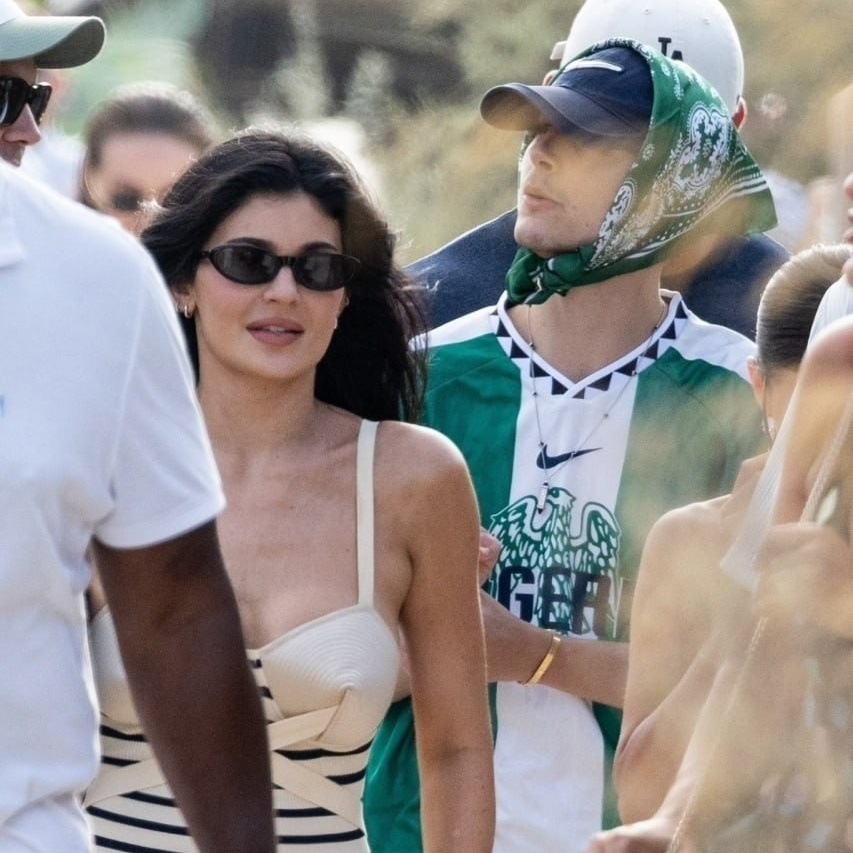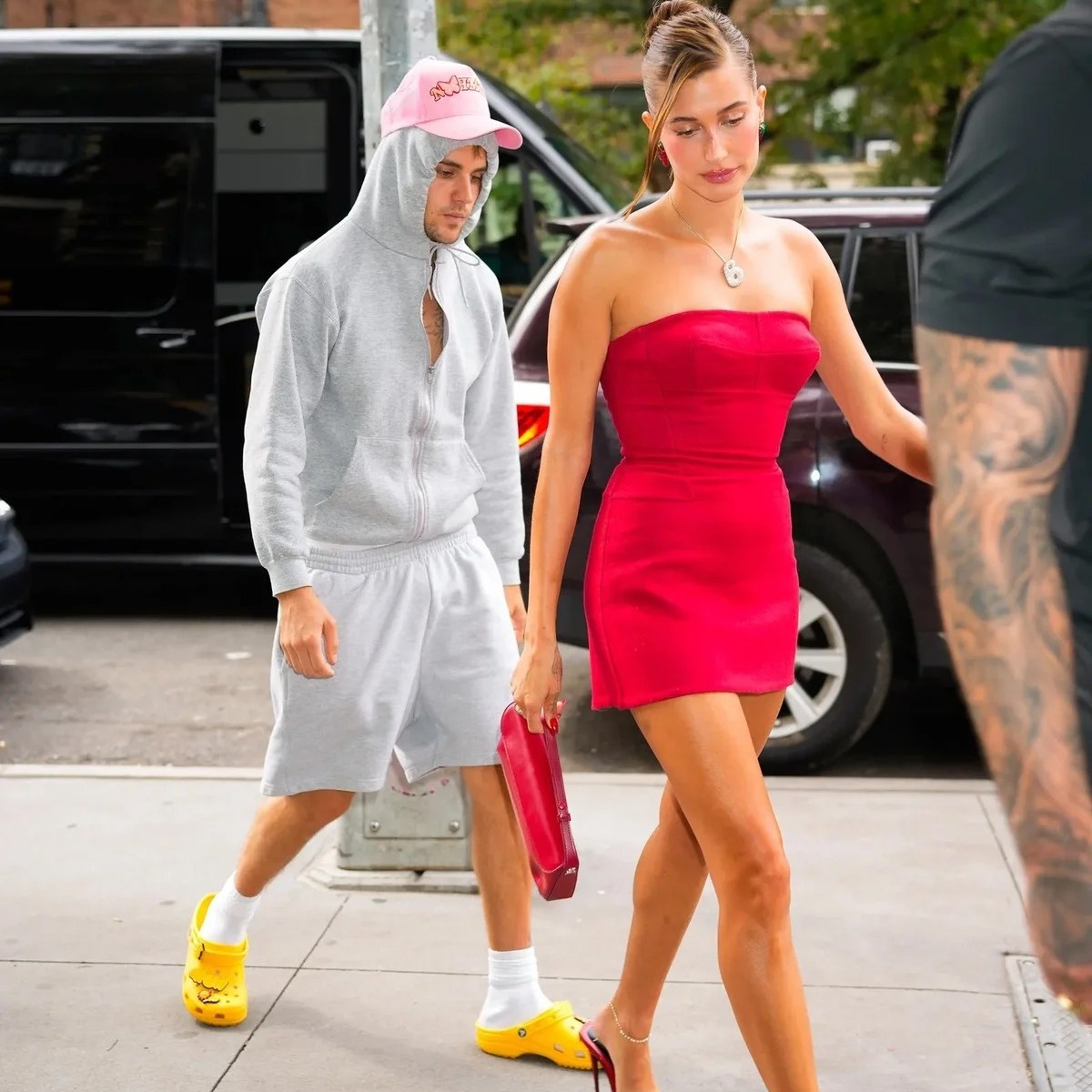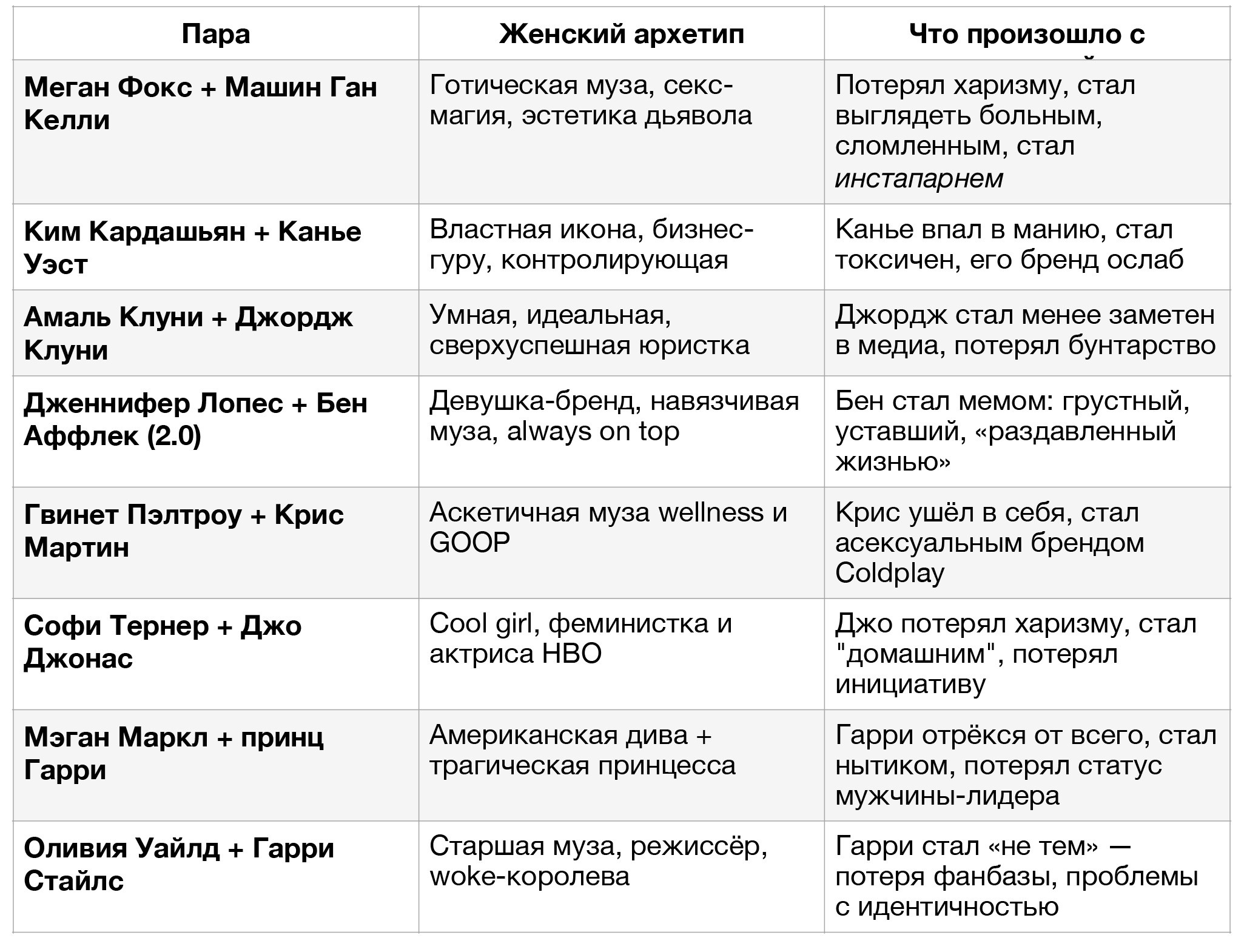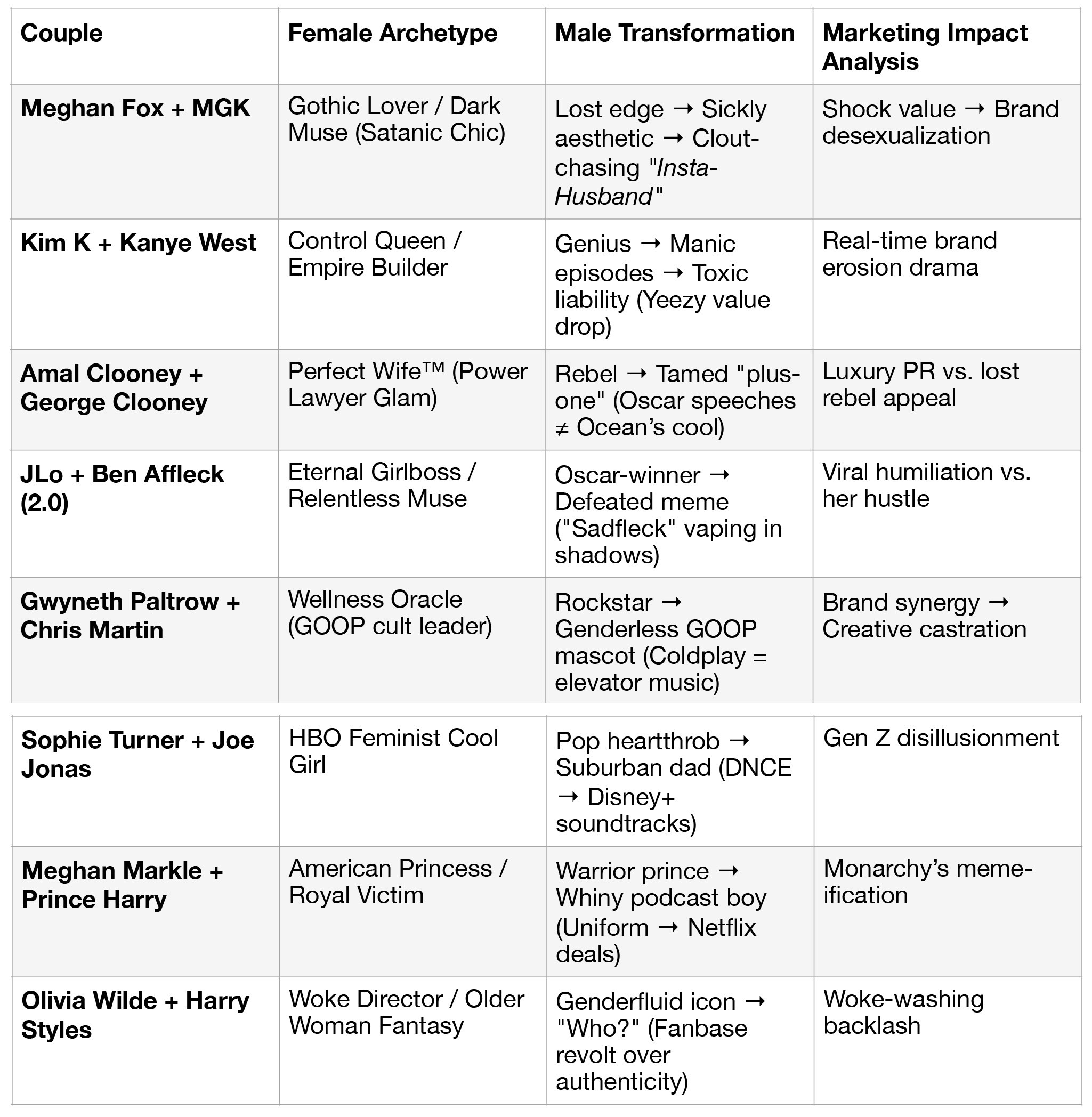



Why American Marketing Pushed the Trend of Glamorous Women Elevating Their Status by Diminishing Their Men
Once-powerful men now look like urban freaks next to their “perfect” partners. What’s behind this cultural shift?
🔍 1. The “Predatory Muse” Archetype & the Capitalization of Female Glam
In modern marketing and pop culture, the glamorous woman who builds her career through wealthy men isn’t just an image—it’s a powerful social brand. This archetype is built on:
- Visual polish (luxury aesthetics, high-glam)
- Manipulative power (via sex, influence, control)
- Performance of success (without depth or talent—just the “right” man)
She’s not just a partner—she’s a branded accessory sold alongside the man.
Example:
- Hailey Bieber: Sterile perfection vs. Justin Bieber: Sickly, exhausted, broken.
- Kylie Jenner: Glossy wealth vs. Timothée Chalamet: Comically disoriented, feminized.
This contrast enhances the woman’s perceived success—she “drains” the man’s resources while symbolically dominating him.
2. Woman = Billboard, Man = Resource
The formula:
- She becomes the flawless, marketable face.
- He deteriorates into exhaustion, instability, or meme fodder.
Why?
- Soft power sells: Women now wield control through cold, glamorous dominance (not brute force).
- Male vulnerability is profitable: A “tired, broken” man generates pity, memes, and engagement.
Case Studies:
- Kim Kardashian (empire builder) vs. Kanye West (public meltdowns → brand erosion).
- JLo (relentless hustle) vs. Ben Affleck (“Sadfleck” meme).
3. Men as Victims? The New Masculinity Crisis
Pop culture is reprogramming masculinity:
- From alpha → “creatively exhausted”
- From dominant → emotionally unstable
Brand Benefits:
- A “damaged” man sells vulnerability (profitable for music, fashion, gossip).
- The woman beside him looks controlled, divine, perfect for beauty/luxury marketing.
- Cross-promote audiences
- Fuel memes/TikTok discourse
- Every public appearance = branded content
- The man = depleted resource
- The woman = glossy CEO of his decline
4. Celebrity Couples as Marketing Assets
Pairs like Kylie+Timothée or Hailey+Justin aren’t romances—they’re business alliances:
If the man “loses himself, ” it’s part of the script—his downfall drives engagement.
🔥 Conclusion: A Spectacle of Power
Modern celebrity couples are performances:
Their “love story” is a transaction with the god of advertising.
📌 Key Patterns in These Relationships:
Women
- Producers, brand managers
- Styled as brands (glam, feminism)
- Monetize drama (divorces, collabs)
Men
- Lose individuality
- Become “insta-boyfriends” or melt down
- Fuel memes and pity
- Female brands sell better than male ones.
- Male suffering drives more engagement (meme culture, sympathy).
- Even without love, it’s a killer business model.
- Female brands sell better than male ones.
- Male suffering drives more engagement (meme culture, sympathy).
- Even without love, it’s a killer business model.
Why This Trend Dominates:
Why This Trend Dominates:
“Love is dead. Long live the branded power couple.”




Deep research
The Blogger Ecosystem: A Deep Dive into the Hierarchy of Digital Influence
The blogosphere is a self-sustaining creative food chain, where everyone feeds off each other. Let’s break down its hierarchy and typology, as it’s now a core pillar of modern culture.
Blogger Taxonomy in Contemporary Culture
1. The Exhibitionists
Examples: Kardashians, Dudu Osman, Hailey Bieber
Essence: They monetize existing—drama, beauty, relationships, kids, handbags, divorces, even injuries.
Motto: “I am the event.”
2. The Analysts & Parasites
Examples: Pop-culture exposés, meme critics, TikTok detectives
Essence: They don’t live original lives—they dissect others’ lives. From serious deep-dives to “How Kardashians Eat Salad” skits.
Motto: “I am the mirror.”
3. The Craftsmen
Examples: Artists, designers, ceramicists, food stylists
Essence: Their life is their craft. They document process, showcase results, teach.
Motto: “I am the work.”
4. The Curators
Examples: Pinterest archivists, Instagram mood boards, gallery reposters
Essence: They don’t create—they reframe. Human algorithms turning content into exhibits.
Motto: “I am the museum.”
5. The Translators
Examples: AI art coaches, “Paint Like Basquiat” courses
Essence: They recycle trends into teachable formats—sometimes crediting, often not.
Motto: “I am the conduit.”
6. The Trendsetters
Examples: Conceptual artists, meme alchemists, underground TikTok innovators
Essence: Invisible at first, but invent what masses copy 6 months later.
Motto: “I am the source.”
Key Insight
This ecosystem operates on a creation → distribution → critique → commodification pipeline.
- Exhibitionists fuel it with raw material.
- Analysts profit from deconstructing it.
- Craftsmen/Trendsetters are its rarest (and most valuable) nodes.
The Paradox:
“The louder you are, the less you create. The more you create, the less you’re seen—until everyone steals from you.”
